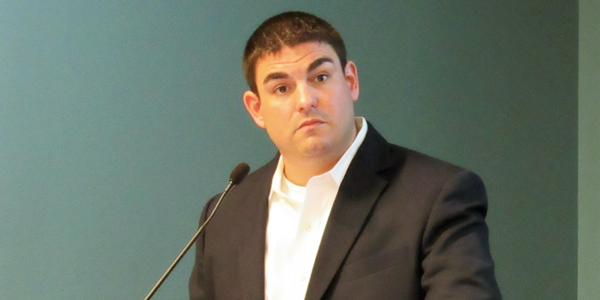By Amanda Durish Cook
MISO on Friday gathered interconnection and transmission customers in a special teleconference to discuss potential waivers of its queue requirements because of the ongoing COVID-19 pandemic.
Senior Corporate Counsel Chris Supino told call participants that MISO is “willing to consider seeking waivers” from FERC of some generator interconnection and agreement requirements to give extra time to parties navigating the queue under the cloud of the pandemic.
Supino asked interconnection customers and transmission owners to tell their pandemic-related impacts to MISO. The RTO said it’s exploring some deadline extensions related to satisfying site control requirements, temporarily relaxing deadlines around study deposits and extending time frames for facility studies.
“We understand it’s hard to get out to the land and talk to landowners,” Supino said of MISO’s requirement that customers demonstrate 100% site control 90 days before proposed projects enter the first of the three-part definitive planning phase of the queue for study.
Supino also said interconnection customers have expressed concerns over the “general availability of consultants, advisers and legal teams” during social distancing mandates. The limited accessibility of third-party contractors could delay critical aspects of generation projects, some stakeholders said.
Other stakeholders are asking MISO to extend its usual three-year grace period for projects to achieve commercial operation in generator interconnection agreements.
Supino said MISO wants to keep the waivers “reasonably limited” to the next few months to prevent cascading impacts to the queue.
“We are looking to address requirements that are an issue for a large portion of our stakeholders, or at least a substantial group,” he said. “We’re not looking for one-off circumstances. I know that many different things can happen with a project, and there might be temptation … but we want to keep this focused on the issue at hand here.”
Supino said customers who believe that special circumstances related to the pandemic are impacting their interconnection projects should “contact MISO to discuss their specific situation and why further waiver relief is needed.” He said stakeholder feedback so far appears reasonable, focused on “pushing deadlines out,” not weakening or rewriting queue requirements.
“We don’t want to over-relax requirements or cause problems for customers, or impact the next queue cycle,” he said, adding that MISO also doesn’t want to put renewable projects in jeopardy of not receiving production tax credits.
MISO has several queue deadlines looming in the next 90 days, including: a June 25 application deadline for a new cycle of project proposals; proof of site control for MISO South projects in the 2020 cycle; the first decision point on whether to remain in the queue and risk monetary penalties for the 2019 batch of South generation projects; and the second decision point for Central and East projects that entered the queue in 2018.
Staff so far said they haven’t fallen behind in the processing of applications or the study of interconnection requests. “We’ve successfully transitioned to most of our employees working from home,” Manager of Probabilistic Resource Studies Ryan Westphal told stakeholders.
NextEra Energy Resources’ John Dailey said interconnection customers beyond those entering the queue in June will be affected. He said interconnection customers planning to enter the queue over the remainder of the year had already been working on securing land.
WPPI Energy’s Steve Leovy cautioned MISO not to tie temporary queue extensions to any federal or state declarations, as the stages of the pandemic are quickly evolving. He instead urged the RTO to examine the “general circumstances” of the crisis.
Clean Grid Alliance’s Rhonda Peters thanked MISO for considering waivers and asked how quickly it could put them in place. Supino said that FERC has been processing pandemic-related waivers “very quickly.”
PJM has already filed a queue waiver to extend study deposit due dates, feasibility studies and reviews of new service requests and processing. NYISO has obtained a waiver of its notarization requirements.
MISO will discuss possible queue waivers with the Planning Advisory Committee during its April 15 conference call.



